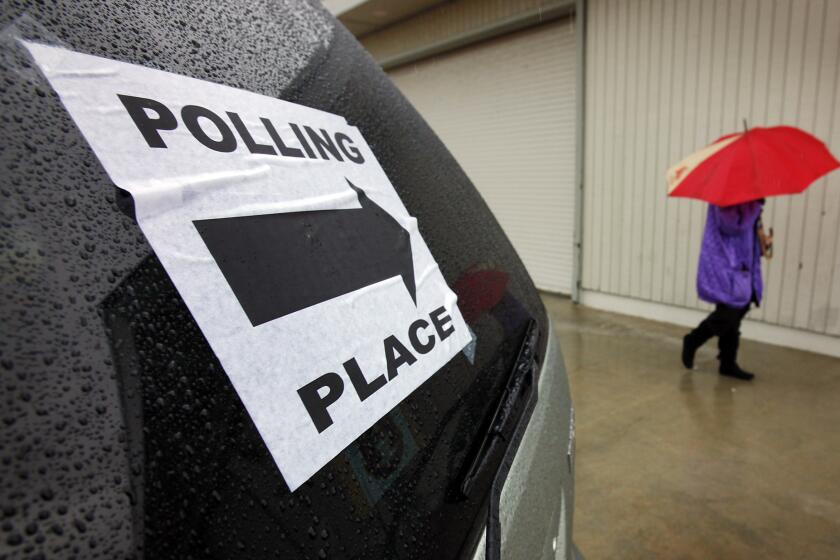Senate GOP allows bill repealing tax breaks for oil, with a catch
Reporting from Washington — In an unusual but calculated political move, Senate Republicans declined to block a Democratic bill that would repeal tax breaks for oil companies -- choosing instead to launch a floor debate on the legislation as a way to showcase the Keystone XL pipeline and other GOP proposals aimed at curbing sky-high gas prices.
Republican-led opposition will almost certainly defeat the bill on final passage later this week. But by allowing debate, the GOP hopes to harness voter angst over prices at the pump as a political weapon against President Obama’s energy policies. Republicans will especially target the White House move to postpone a decision on the Keystone pipeline between Canada and the Gulf of Mexico, an issue that has driven a wedge between environmentalists and some unions -- key allies of the White House.
“We’re going to use this opportunity to explain how out of touch Democrats are on gas prices, and put a spotlight on the common-sense ideas Republicans have been urging for years,” said Sen. Mitch McConnell of Kentucky, the GOP leader.
Democratic leaders wanted to use Monday’s procedural vote as a quick political opportunity to contrast partisan priorities. They sought to portray Republicans as siding with the big oil companies at a time when Republicans in the House are expected to vote this week to cut taxes on wealthy Americans and revamp Medicare as part of its budget blueprint from Rep. Paul D. Ryan (R-Wis.).
The Senate voted 92-4 to advance the proposal, and spending the next days in debate could still accomplish those goals for Democrats, even though the party has had trouble keeping their senators unified on the issue. The White House issued a statement of support.
“The nation simply cannot afford these wasteful subsidies,” the White House said. “This money can be better spent promoting domestic manufacturing, encouraging the development of clean energy technologies that will reduce our dependence on oil, and cutting the deficit.”
The proposal that would put an end to more than $2 billion in annual subsidies for the so-called big-five oil companies, some $24 billion over 10 years. About half of the revenue would be reinvested in alternative energy sources, including extending expiring tax breaks for plug-in vehicles, biodiesel, wind development and energy-efficient homes and appliances. The remainder would be applied to deficit reduction.
As pain at the pump continues for motorists, the vote is a reminder of how little Washington can do to quickly bring down costs. The combination of a recovering U.S. economy and geopolitical developments weighs on oil prices as the number of domestic drilling rigs is at a high.
Supporters argued that the oil companies are making substantial profits, up to $1 trillion over the decade, according to Sen. Robert Menendez (D-N.J.), the bill’s author, and no longer need federal help. He welcomed the unexpected floor debate, saying the votes ahead would draw a contrast between the parties.
“Which side are you on?” Menendez said. “Are you on the side of the American taxpayer or are you on the side of big oil?”
But opponents said cutting the subsidies would hinder the development of domestic oil production and unfairly target the industry. The legislation would apply only to the big-five companies: BP, Exxon, Shell, Chevron and ConocoPhillips.
“High energy prices are part of President Obama’s plan,” said Rep. John Cornyn (R-Texas), the chairman of the GOP’s campaign arm in the Senate.
By allowing the legislation to advance, Republicans can now engage in a floor debate while still withholding their votes to block final passage. Democrats would need several GOP senators to cross party lines to approve the measure, and that is not likely. Also, in the past, several Democratic senators from oil-rich states have joined the GOP to filibuster attempts to curb the subsidies.
Original source: Senate GOP allows bill repealing tax breaks for oil, with a catch
More to Read
Sign up for Essential California
The most important California stories and recommendations in your inbox every morning.
You may occasionally receive promotional content from the Los Angeles Times.











